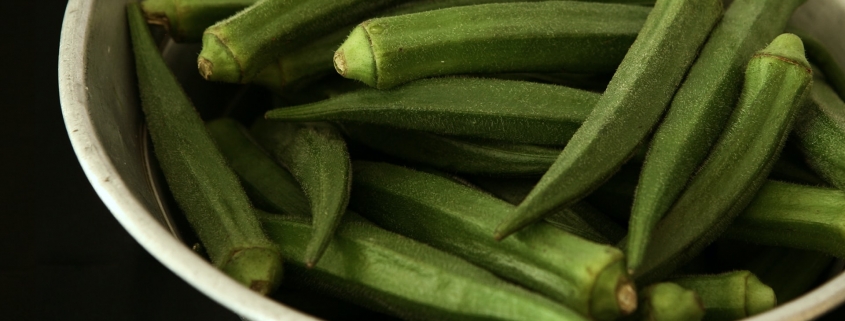Is Okra AIP Compliant?
Each time I post a recipe in the AIP Recipe Collection Facebook Group for a recipe that includes okra I get hit with a wave of comments that it’s not compliant or someone’s been told not to include okra in their AIP diet. With that, here is my compilation of research on the topic and my advice.
- As you will hear me say again and again, the Autoimmune Protocol is a template – it is meant to be personalized to you and your health circumstances. Just because a food is considered elimination stage compliant does not mean that everyone on planet earth will necessarily be able to consume it. Take for instance my allergy to pineapple – it’s elimination stage friendly, but I can’t eat it. Or the fact that fermented foods are for the most part elimination stage compliant and touted to be fantastic for many health conditions – perhaps, but not for me and my condition. So, as with everything you’ll be dealing with on the AIP, know your body, know your health condition, work with the AIP as a template and jumping off point for your journey. If you feel unwell with a food, note it and discontinue use. If your practitioner/nutritional specialist/medical professional advises you not to use something in your diet – do not use it – AIP friendly or not.
- What is okra? Everyone seems to think it’s a nightshade – it is not. Botanically speaking, okra is known as Abelmoschus esculentus or Hibiscus esculentus. It’s a member of mallow family, related to hollyhocks, rose of Sharon and hibiscus [SOURCE: HGTV.com].
- What do the experts say? First of all, lets address nightshades – if you’re not sure what a nightshade is, you can read a little about them on Dr. Ballantyne’s website here, where she explains the reason why nightshades are problematic for many people due to the glycoalkaloid content, and THIS is where much confusion has stemmed regarding okra. According to Dr. Ballantyne, some websites have erroneously reported that some NON-nightshade fruits and vegetables contain glycoalkaloid solanine, but we can rest assured that in her nerdy, science guru fashion, she has researched this fully and tells us we can rest assured that okra is safe to consume from a glycoalkaloid solanine standpoint. As a follow up you can read her article about blueberries (Should I avoid blueberries on the AIP?), as these delicious berries have been accused by some of containing solanine as well. Thankfully Dr. Ballantyne has done her research and listed her sources there and again states she can not find any scientific evidence to avoid bluberries or okra: “there is NO scientific evidence that solanine (or any other glycoalkaloid) is present in any fruit or vegetable that is not a member of the nightshade family“.
The Conclusion? . . . Let them eat okra!
I’m no scientist, but Dr. Ballantyne is – that’s her background … literally! If she’s done the research and says okra is AIP elimination stage compliant (which she has), she has not changed this stance in the updated version of the protocol (which she has not), I have no reaction to it (which I’ll find out), and my medical professional does not advise against consuming it (quite the contrary, she’s encouraging it in my case), I’d say that’s a pretty bright green-light on the subject.
Hope this helps dispel any myths about okra.
Looking for food lists to help on your AIP journey? Visit our Food Lists Page – click here.

